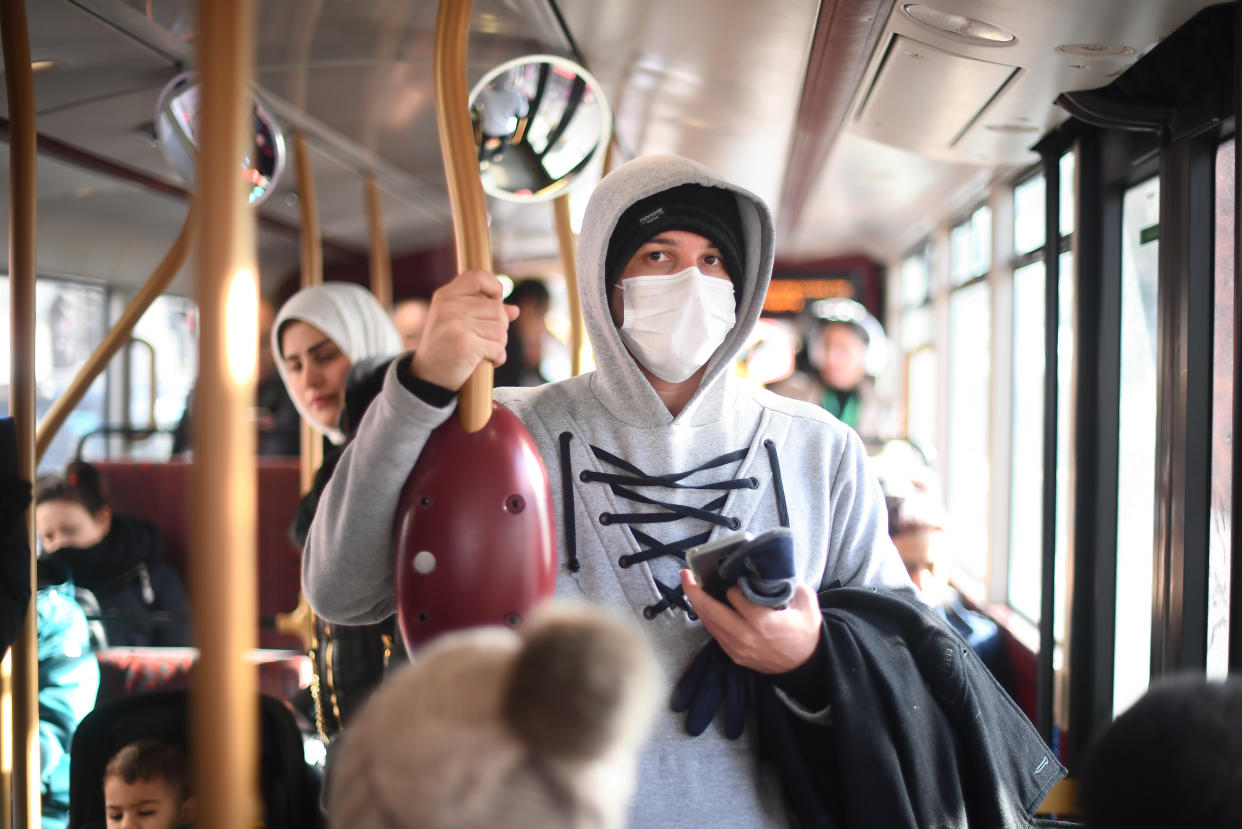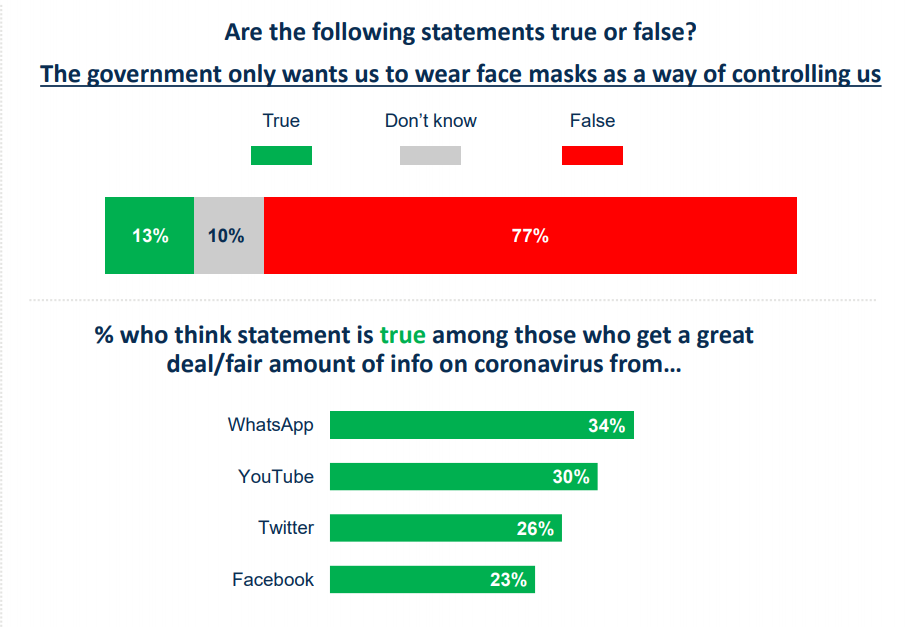One in ten think the government is trying to control us by forcing people to wear masks, survey reveals


Face masks have become a source of tension for a significant number of people as their usage has soared in recent months, a survey has found.
The report found 10% of respondents think face masks are bad for your health and 13% think they are just a way for the government to control the population.
Since face coverings became mandatory in shops on 24 July in England there has been a significant increase in mask-wearing - from 19% in April up to 70% in recent weeks.
The survey found 81% of people believe masks help reduce the spread of coronavirus, with 9% thinking they do not.
The report came from a survey of 2,237 UK residents aged 16-75, by King’s College London in partnership with Ipsos MORI.
Young people, those who think they’ve had coronavirus and those who believe the virus is a low risk, were all more likely to believe masks were bad for their health.
Around a quarter of those who say they get a great deal or fair amount of their information about COVID-19 from social media say wearing a mask is bad for your health.


Similar trends were found when respondents were asked if mask usage was just a tool by the government to control the population, with one in eight believing this was the case, rising to one in five among 16-24s.
The belief was highest among Asian and minority ethnic (BAME) groups, with a quarter believing masks were a tool to control the population.
The biggest indicator as to whether a respondent believes the government are using masks to control people, is if they use social media to get their news.
Read More:
UK government accused of blaming Europe for spike in cases
Why is the government insisting no one knew about asymptomatic spread of COVID-19?
How lockdown rules around shielding for at-risk people will change on 1 August
34% of those who use WhatsApp as their main source of information think face masks are a way for the Government to exert control, as do 30% of respondents who rely on YouTube for news and information.
Professor Bobby Duffy, director of the Policy Institute at King’s College London, said: “The large majority of the public have now come round to the idea of wearing face masks – a rapid change in both behaviour and belief, given how recently ago they seemed like an extreme measure and there was such uncertainty over their effectiveness in advice from Government and elsewhere.
“But face masks are also proving a source of tension for a significant minority.
“One in eight survey respondents say they’ve been involved in either confrontations or reports to the authorities about not wearing them – and, while this is a minority of the UK population, it is equivalent to around six million people.
The evidence around whether wearing a face mask helps to control the spread of the virus is inconclusive.
The virus spreads through tiny water droplets that mainly come from coughing, sneezing, and talking.
Dr Antonio Lazzarino from University College London previously said people will continue to touch their face with potentially-contaminated hands.
“Therefore, instead of helping us contain the virus, face coverings may just help the virus spread across the world,” he said.
Professor Trish Greenhalgh from the University of Oxford said, “The science on this is clear: COVID-19 is most commonly transmitted by droplets emitted when we cough, sneeze, shout, sing and even just breathe in close proximity to others.
“We can’t stay behind our front doors forever, and nobody wants a second wave of COVID-19, so covering our faces will become the new normal in public places, workplaces, and on public transport”.
The World Health Organization (WHO) recommends people should wear a face mask in public when social distancing is not possible.

There is no evidence face masks are bad for your health or that the government is using them to control the population.
The number of people wearing face masks has increased significantly in recent weeks, with an increase from 38% on 20-22 May to 70% on 17-20 July.
Levels of face mask-wearing were high among all demographics and locations. Highest usage of face masks is in Scotland, at 86%, where coverings became mandatory in shops on 10 July.
The study found 81% of the population believe masks help fight the virus, with only 9% disagreeing. Results are similar across all demographics.
The major outlier was among people who think the virus is a low risk to the population, with 17% of them believing masks didn’t help.
Wearing a mask indoors in public spaces, including shops, banks and supermarkets became mandatory in England on 24 July, with failure to do so potentially leading to a £100 fine.
The only people exempt from wearing them are children under the age of 11 and people with certain disabilities and health conditions.
Masks are not required in pubs, gyms, and restaurants, although staff will be wearing them and customers should attempt social distancing wherever possible.
Coronavirus: what happened today
Click here to sign up to the latest news and information with our daily Catch-up newsletter

 Yahoo News
Yahoo News 